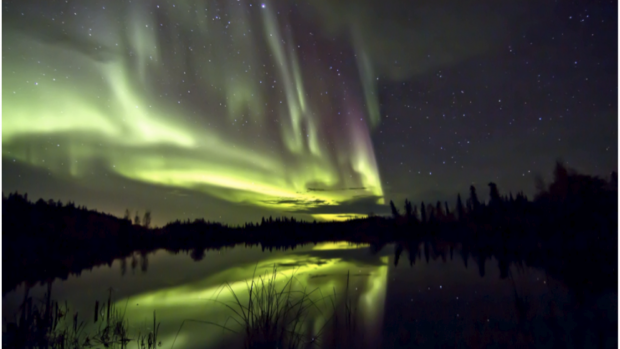Riffle: groove or slat in a sluice to catch particles of ore
Epinosic: unwholesome, unhealthy.
Stanza: I did not know that ‘stanza’ originally meant room, or halting place, until I started reading Lee Upton’s Defensive Measures on the poetry of Gluck, Carson, Bishop, and Niedecker. Upton was writing about the ‘condensing language’ of poetry, and the associated ‘illusion of interiority’.
Stanza segreta di Michelangelo (Musei del Bargello)
Doing a little research previously while planning what follows on from an event in Wild Goose Hunt (that’s what’s known as a heads-up), I came across the Carrington Event, of which I had never heard.
It was a very intense electromagnetic storm in September 1859 that caused unusually strong aurora, and damage to telegraph stations, and is thought to have been the result of a strong solar flare.
 |
| Geomagnetic Storm Aurora (noaa.gov) |
And lo! Apparently there was a solar flare from an 'unstable' sunspot, that caused radio blackouts across Southeast Asia and in Australia, on February 5th (Eastern Standard Time). I'll really have to start being a bit more responsible about what I put into books…
"Edogawa was a great fan of Edgar Allan Poe, Conan-Doyle and Arsene Lupin and, although he was not the first Japanese writer of mysteries, he certainly was one of the best known in his heyday, a key figure in developing mystery and thriller writing in Japan."
The blog post is about the book The Black Lizard and its film adaptations, but
"if you want to read a more genuinely unsettling story and get a feel for Edogawa’s talent, I’d recommend Beast in the Shadows, which has also been reissued recently by Penguin."
"During the Middle Ages, Christians were expanding their religion into every corner of Europe. To bring new lands under Roman Catholicism, the old pagan faiths had to be destroyed. Here is how this was done on the island of Rügen in the twelfth century."
I have had a fascination, from the time I was quite young, with the boundaries between things, especially where the boundaries are intangible, like the boundary between one townland, or country, and another; or, like cultural transformations, are slow and subtle.
Being also reasonably literal in my expectations, I struggled when little with the idea of ‘gradual transformation’ rather than ‘hard border,’ no matter how patient the parental explanation.
Since those of my books set in the Hibernia Altera universe draw heavily on (or shamelessly pillage) Irish myth, I am always interested to find out more. As a great deal of what is written about ancient Ireland and anything labelled ‘Celtic’ lies more in the realms of fancy than of fact, one must be forever vigilant.
The past few months, however, have seen the launch of not one but two podcasts relating to Irish myth and history with reassuringly scholarly credentials. I’ve finally got around to catching up, and listened this week to the opening episode of Fabula Celtica:
"A general Celtic Studies podcast based out of Ireland. We cover various topics organised into thematic series. Hosted by Tyler Baxter (MA Celtic Studies, PDip in Ancient and Medieval Languages) and Kevin Collins (the tech guy with a Cork accent). The podcast aims to be accessible to general audiences, blending storytelling and scholarship."
The episode took as its starting point the Lebor Gabála Érenn (Leabhar Gabhála Éireann / Book of Invasions), and is a fine general introduction to the topic. I’ll be back!
(I will have a listen to the second of the two podcasts mentioned above, in time for next Friday’s miscellany.)



No comments:
Post a Comment